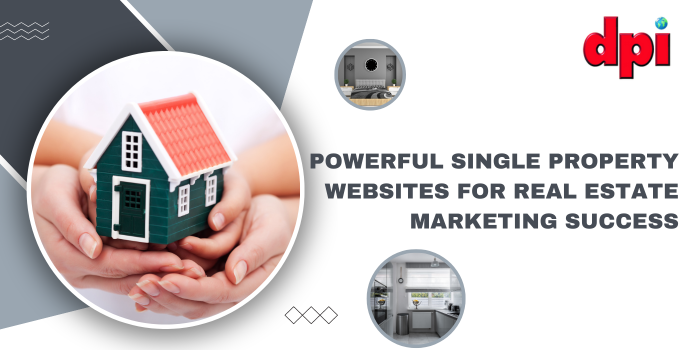In the competitive world of real estate marketing, it’s essential to stand out from the crowd. Generic websites that list multiple properties often fail to create a lasting impression on potential buyers. Powerful Single property websites, on the other hand, are custom-made platforms designed to showcase a specific property with precision and detail. These websites are crafted to provide potential buyers with an immersive experience, making them more likely to consider the property seriously.
Understanding Single Property Websites
What are Single Property Sites?
Single property websites, as the name suggests, are individual web pages dedicated solely to showcasing a single property. Unlike conventional real estate websites that list numerous properties, single property websites focus all attention on one listing. These websites are designed to highlight every aspect of the property, including its unique features, location, amenities, and captivating visuals.
How Do They Differ from Regular Real Estate Websites?
Traditional real estate websites aim to provide a broad range of property listings to cater to a wide audience. In contrast, single property websites zoom in on a specific property, offering in-depth information that a generic website cannot match. The goal is to create a sense of exclusivity and uniqueness, enticing potential buyers to explore the property further.

Advantages of Powerful Single Property Websites
Enhanced Property Presentation
Single property websites allow you to create a visually stunning and engaging presentation of the property. High-quality images, videos, virtual tours, and 3D models can all be integrated to showcase the property’s best features. This level of personalization elevates the buyer’s experience, leaving a lasting impression.
Targeted Marketing and SEO Benefits
By creating a dedicated website for a single property, you can focus your marketing efforts precisely on the target audience interested in that property type or location. Additionally, optimized single property sites with relevant keywords and content can improve your search engine rankings, increasing visibility to potential buyers.
Lead Generation and Tracking
Single property websites enable effective lead generation as visitors are specifically interested in the showcased property. You can track user behaviors’ and engagement, gaining valuable insights to refine your marketing strategies and improve conversion rates.
Stay with me, and I’ll continue the article in the next message…
Key Elements of an Effective Single Property Website
To ensure that your single property website maximizes its impact and attracts potential buyers, it’s essential to incorporate key elements that enhance the user experience and engagement.
Captivating Visuals and Media
The first impression matters, and captivating visuals are the key to grabbing the attention of potential buyers. High-resolution images, professionally shot videos, and even drone footage can help showcase the property from different angles, making the listing more appealing.
Detailed Property Information
Provide comprehensive and accurate information about the property. Include details about the property’s size, layout, amenities, and any unique selling points. Be transparent about pricing, property history, and any potential renovations or upgrades.
Interactive Maps and Neighborhood Data
Help potential buyers get a better sense of the property’s location by integrating interactive maps and providing information about nearby amenities, schools, parks, and public transportation options. This will help buyers assess the property’s convenience and attractiveness.
Call-to-Action (CTA) Features
Incorporate prominent and strategically placed calls-to-action on the website. Encourage visitors to schedule a property tour, request more information, or sign up for property alerts. A clear and compelling CTA can significantly boost lead generation.
Best Practices for Building Single Property Websites
Creating a successful single property website requires careful planning and execution. Here are some best practices to follow:
Choosing the Right Domain Name
Select a domain name that is relevant to the property and easy to remember. Including the property address or a catchy phrase can be effective.
Mobile Responsiveness and User Experience
Optimize the website for mobile devices, as an increasing number of users browse the internet on their smartphones. Ensure that the website loads quickly and is easy to navigate on all devices.
SEO Optimization for Maximum Visibility
Conduct keyword research and incorporate relevant keywords throughout the website’s content. This will improve the website’s search engine rankings, making it more visible to potential buyers.
Top Platforms and Tools for Creating Single Property Websites
Several platforms and tools can help you create best single property websites without requiring extensive technical knowledge. Some popular options include:
WordPress Themes and Plugins
WordPress offers various themes and plugins specifically designed for creating single property websites. These can streamline the process and provide you with customizable templates.
Dedicated Single Property Website Builders
Numerous website builders cater to the real estate industry, offering specialized templates and features for creating single property websites. Examples include Squarespace and Weebly.
Utilizing Virtual Tours and 3D Models
Embrace the power of technology to provide virtual tours and 3D models of the property. These immersive experiences can give potential buyers a better sense of the property’s layout and ambiance.
Engaging Buyers with Virtual Reality (VR)
As technology enables consumers to visually “walk through” the property from the comfort of their homes, virtual reality is growing in popularity in the real estate sector. VR experiences foster an emotional bond and have a big influence on how consumers make decisions.
360° Virtual Tours for Immersive Experiences
360° virtual tours enable users to explore every nook and corner of the property interactively. This level of engagement keeps potential buyers on the website for longer, increasing the likelihood of conversion.
Promoting Your Single Property Website
Building an powerful single property website is just the first step; you also need to promote it effectively to reach your target audience. Here are some strategies to consider:
Using Social Media Channels
Share the single property website on your social media platforms to reach a wider audience. Use visually appealing posts and engaging captions to generate interest.
Email Marketing Campaigns
Create targeted email campaigns to notify potential buyers about the new listing. Personalized emails with relevant property details can lead to higher conversion rates.
Collaborating with Real Estate Agents and Agencies
Partnering with real estate agents and agencies can expand your reach and connect you with potential buyers who may be actively searching for properties.
Measuring Success and Analytics
To optimize your single property website’s performance, it’s important to monitor its success using analytics tools. Keep track of the following metrics:
Monitoring Website Traffic and Engagement
Track the number of visitors, time spent on the website, and bounce rates. This data will help you identify areas for improvement and understand what aspects of the website are resonating with your audience.
Evaluating Conversion Rates and Lead Generation
Monitor the number of leads generated through the website and analyze the conversion rate. This information will guide your marketing strategies and allow you to refine your approach.
Future of Single Property Websites
As technology continues to advance, the future of single property websites looks promising. Here are some trends to watch out for:
Technological Advancements and Trends
As virtual reality, augmented reality, and artificial intelligence continue to evolve, these technologies will likely play a more significant role in creating engaging property experiences.
Personalization and AI Integration
Artificial intelligence will enable more personalized website experiences, tailoring content and property recommendations based on user preferences and behaviors’.
Conclusion
Single property websites are powerful tools that can transform your real estate marketing efforts. By dedicating a website to a specific property, you can create an immersive experience that captivates potential buyers and generates leads. Remember to focus on captivating visuals, detailed property information and interactive features to engage your audience fully. Embrace the latest technologies, such as virtual reality and 360° tours, to stay ahead of the competition. With careful planning and execution, a well-designed single property real estate websites can be the key to your real estate marketing success.
